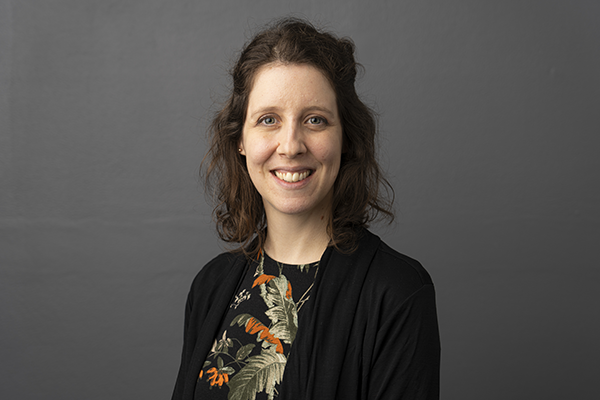Caitlin Margaret Singleton
Research leader

Project title
Restoring the Carbon Balance: Using Bacteria, Archaea and their Viruses to Assess Peatland Health and Predict Restoration Success - CArBiVoRE
What is your project about?
Peatlands store huge amounts of carbon, 30% of the global soil carbon, but only make up 3% of the world’s land surface. Denmark used to be 10% peatland, but most of this has been drained for agriculture. These drained peatlands are huge carbon dioxide sources, the equivalent to 1.8 million fossil-fuelled cars in Denmark every year. Peatland restoration is a key topic in Denmark, but we need to do it in an informed way, otherwise rewetted peatlands can release methane or create other problems. Microorganisms are responsible for producing these greenhouse gases. This project is about using those microorganisms, specifically bacteria, archaea and their viruses, to assess the health of the peatland. Is that microbial community good? Will it respond well to rewetting? Or will it take a long time to restore and produce a lot of methane emissions before it is restored?
How did you become interested in your particular field of research?
My journey began with an Anthropology, Literature and Biology dual degree at the University of Southern Queensland in Australia. I have broad academic interests but directed my future towards exploring the environment and our impacts on it, in order to move towards protecting it. I did an Honours year followed by a PhD at the University of Queensland, where I worked as part of a big international team looking at a thawing permafrost peatland affected by climate change, and how microorganisms are involved in greenhouse gas release and a positive feedback cycle. Then during my postdoc at Aalborg University, supervised by Profs. Per H Nielsen and Mads Albertsen, we dramatically advanced the methods for looking at the “CVs” of environmental microbes, their genomes. This background set me up to tackle the challenge of restoration, which is of high importance both in Denmark and across the globe as we are now in the UN Decade of Restoration.
What are the scientific challenges and perspectives in your project?
There are more microorganisms in a gram of soil than there are people on the planet. It is a very complex community, and we know nothing about most of the members. We know even less about the genes they encode. Recovering their genomes and figuring out the roles of such diverse organisms is a huge challenge, but over the years the field has really progressed with identifying the key carbon cycling genes. Additionally, while we know something about these organisms in soil environments, “who is there” based on individual “fingerprint” genes, we know very little about “what they do” and how their roles change with restoration. We are well positioned, due to rapid sequencing technology and methodology advances, to gather this information and combine it with the rich data generated by soil scientists. This combination of interdisciplinary big data is the challenge I am most excited about.
What is your estimate of the impact, which your project may have to society in the long term?
Restoration is an increasingly hot topic around the world. We now know that ecosystems provide many more services than we thought, and have huge extrinsic and intrinsic value. When it comes to peatlands, they have unique wildlife and biodiversity, flood mitigation services, and climate services as important carbon stores. My aim is for this project to contribute to Denmark’s long-term climate change mitigation efforts. This project could input site selection and restoration management by: 1) determining the health of the microbial community and how long it would take to be restored and how much methane it could produce, 2) helping choose which restoration method to use, 3) prioritising the best restoration areas to have a big impact fast. Finally, the method we develop may be applicable to other habitat types like lakes and rivers.
Which impact do you expect the Sapere Aude programme will have on your career as a researcher?
The prestigious Sapere Aude starting grant gives me the opportunity to build a team as enthusiastic as me in helping to solve two of humanity’s biggest crises - climate change and ecosystem degradation. It enables me to collaborate with other experts in the microbiology and soil fields, here in Denmark, the EU and internationally. I really enjoy working with people, to get nerdy, break new ground and solve problems. I am particularly excited to have the freedom to start working with soil scientists at Aarhus University and combine our data into building a soil and microbial model that can help assess peatland health and predict restoration success.
Background and personal life
I was born in Worcestershire in the UK and moved to Toowoomba, Australia when I was 13. It was amazing to experience two completely different environments. I think nature is the best therapy, giving so much perspective when we realise how interconnected and interdependent life is and how we humans are such a small part of it - with a disproportionately big effect. I have always been interested in the human-nature relationship, and I explored that in my undergraduate degree learning about the Romanticism literary movement, and human evolution and culture-environment relationships in anthropology. I love living in Denmark, with its economy of intellect, team spirit and focus on the green transition. I enjoy painting, and have taken up knitting, gardening, bird watching and water spring finding since I moved to Aalborg. I live with my New Zealander husband, and 2.5 year old daughter.
View all research leaders here
Research institution
Aalborg University
Research field
Environmental Microbiology
City of your current residence
Aalborg
High school
Fairholme College, Toowoomba, Australia
